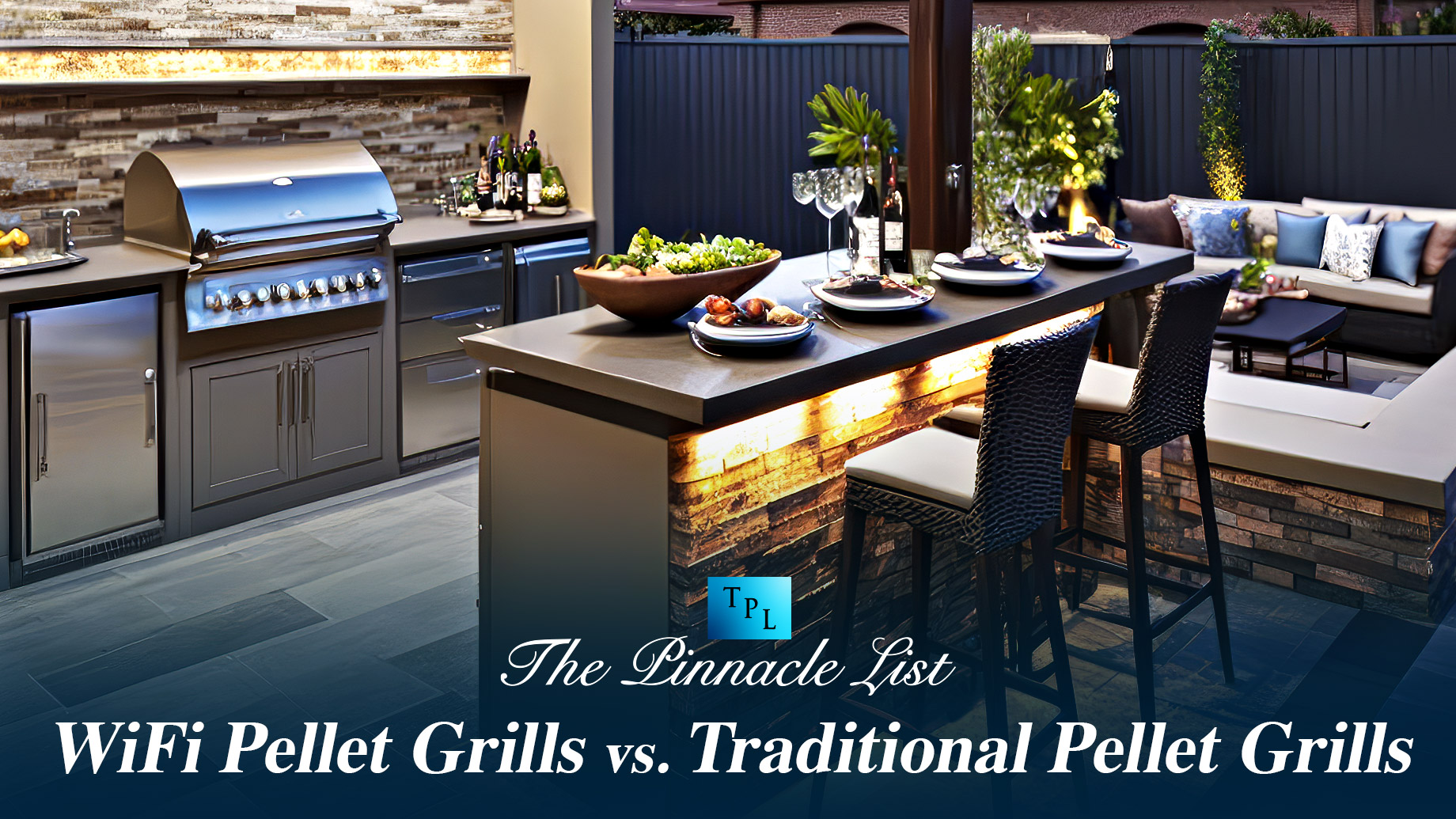
Pellet grills have become increasingly popular in recent years due to their versatility, convenience, and unique flavor profiles. While traditional pellet grills have been around for quite some time, the emergence of WiFi pellet grills has opened up new possibilities for outdoor cooking enthusiasts. In this article, we will compare WiFi pellet grills and traditional pellet grills to determine which is better for your grilling needs.
Traditional Pellet Grills
Traditional pellet grills are designed to use wood pellets as a fuel source, which creates a unique smoky flavor that cannot be replicated by gas or charcoal grills. They feature a hopper that stores the pellets, a control panel that sets the temperature, and a fan that circulates the heat throughout the cooking chamber.
One of the main advantages of traditional pellet grills is their ability to maintain a consistent temperature throughout the cooking process. This makes them ideal for slow-cooking meats and smoking, which requires a low and consistent heat source.
However, traditional pellet grills have some limitations. They require manual adjustments to the temperature settings, which can be time-consuming and labor-intensive. Additionally, they lack the convenience of remote control and monitoring, which can make it difficult to keep an eye on the cooking process while doing other things.
WiFi Pellet Grills
WiFi pellet grills are the next evolution in pellet grill technology. They offer all the benefits of traditional pellet grills, but with the added convenience of remote control and monitoring capabilities. With a WiFi pellet grill, you can monitor and adjust the temperature of your grill from your smartphone or tablet, making it easy to keep an eye on your food while running errands or spending time with friends and family.
Another advantage of WiFi pellet grills is their ability to create custom cooking programs. Some models come with pre-programmed recipes, while others allow you to create your own custom programs based on your cooking preferences. This feature allows you to create the perfect cooking environment for your specific dish, ensuring that it comes out perfectly every time.
Comparison of WiFi Pellet Grills vs. Traditional Pellet Grills
When comparing WiFi pellet grills versus traditional pellet grills, it is important to consider the features and benefits of each. WiFi pellet grills offer the convenience of remote control and monitoring, as well as the ability to create custom cooking programs. However, they are generally more expensive and require a strong WiFi signal to operate properly.
On the other hand, traditional pellet grills are more affordable and offer consistent temperature control throughout the cooking process. However, they lack the convenience of remote control and monitoring, which can make it difficult to keep an eye on your food while doing other things.
Ultimately, the decision between WiFi pellet grills versus traditional pellet grills comes down to personal preference and budget. If you are willing to invest in the added convenience of remote control and monitoring, a WiFi pellet grill may be the best choice for you. However, if you are on a budget and don’t mind manually adjusting the temperature, a traditional pellet grill may be a better option.
Popular brands/models for WiFi pellet grills include Traeger, Green Mountain Grills, and Camp Chef, while popular brands/models for traditional pellet grills include Pit Boss, Z Grills, and Weber.
The Z Grills 11002B WiFi pellet grill is a versatile outdoor cooking appliance that offers a wide range of features for a competitive price. Here are some of the key features of this grill:
- WiFi Control: This grill is equipped with WiFi connectivity, which allows you to control the temperature and cooking time of your food from your smartphone or tablet. This feature makes it easy to monitor your food and make adjustments on the go.
- Large Cooking Area: The Z Grills 11002B WiFi pellet grill has a large cooking area of 1068 square inches, which makes it suitable for cooking for large groups or families.
- Pellet Hopper Capacity: The grill has a large pellet hopper capacity of 28 lbs, which means you can cook for hours without having to refill the hopper.
- Temperature Range: The grill has a temperature range of 160°F to 500°F, which makes it suitable for a variety of cooking methods, including smoking, grilling, baking, roasting, and searing.
- Easy to Clean: The grill is designed to be easy to clean, with a removable grease tray and ash cup.
Conclusion
In conclusion, WiFi pellet grills offer many advantages over traditional pellet grills, including remote control and monitoring capabilities, as well as the ability to create custom cooking programs. However, they are generally more expensive.